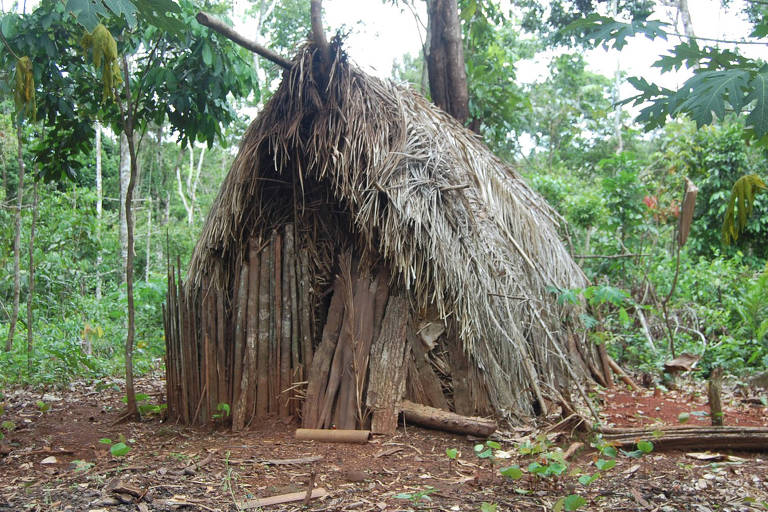A man can, in the course of a lifetime, build himself 53 houses, one after the other – sometimes one each month – in order to guarantee his permanent state of escape and his survival.
It is also in the field of human possibilities to live in isolation, alone, in constant denial of conviviality and contact for decades on end, due to the extermination of an entire people. Tanaru, the " índio do buraco" ( 'holed up Indian'), faced extermination up close and started to contemplate his surroundings from afar.
After decades of isolation in the forest in the south of Rondônia, the body of the indigenous man –the last of his people– was found by Funai (National Indigenous Foundation) workers on a hammock, inside his last hut, on August 23. In each of the huts, Tanaru dug a hole in the ground to achieve some mystical, spiritual, or cosmological meaning for his life.
Alone, he was responsible for preserving an island of Amazonian vegetation, measuring 8,070 hectares, surrounded by open fields and farms in the region of Corumbiara (RO).
Translated by Cassy Dias
